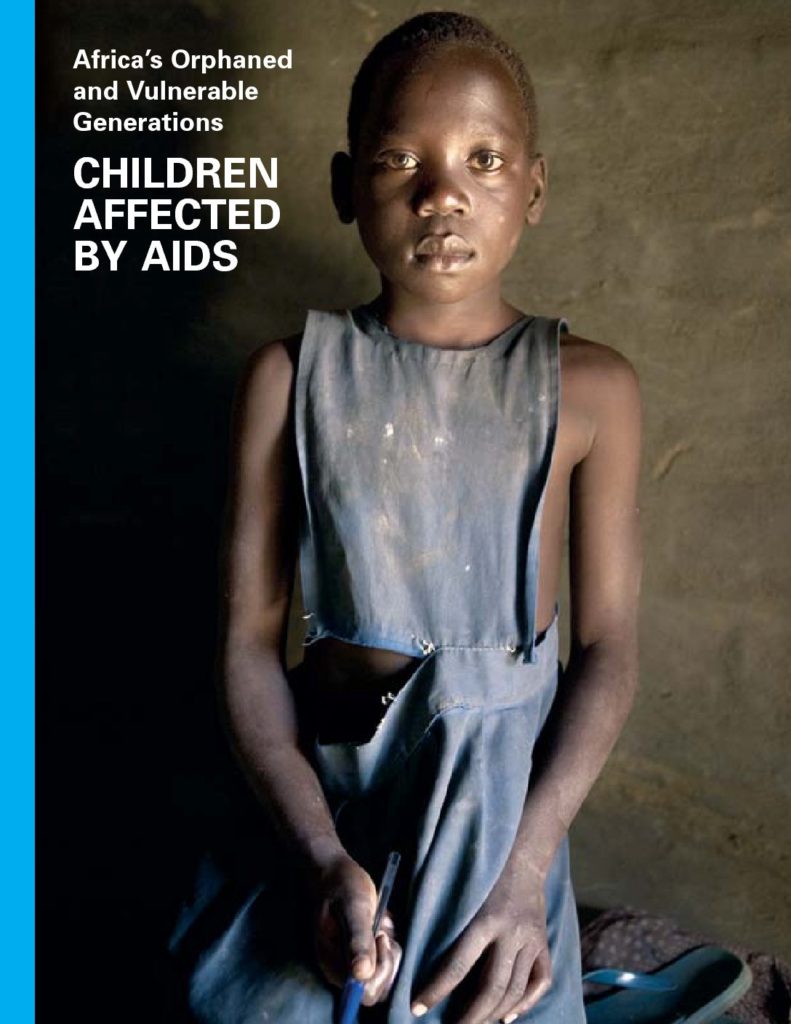
Africa’s Orphaned and Vulnerable Generations: Children Affected by Aids
Downloads
Summary
The AIDS epidemic in Africa puts children at risk physically, emotionally and economically. All children are indirectly affected when their communities, and the services these communities provide, are strained by the consequences of the epidemic. Children are directly affected in a number of ways. They may live at high risk of HIV; they may live with a chronically ill parent or parents and be required to work or put their education on hold as they take on household and care-giving responsibilities; their households may experience greater poverty because of the disease; and they can be subject to stigma and discrimination because of their association with a person living with HIV. Children can also become orphans, having lost one or both parents to AIDS-related illnesses. The situation of orphans and vulnerable children varies by context, and responses need to be based on situation assessments in order to reflect local realities and meet local needs. Links need to be made across sectors to ensure a comprehensive approach. HIV continues to spread against a backdrop of poverty in sub-Saharan Africa. Rapidly accelerated and adequately resourced action that is based on the growing body of evidence can help ensure that orphans and vulnerable children grow up safe, healthy, happy and well-educated, with the chance to achieve their true potential.
Discussion
Users can discuss this report and make suggestions for future updates. You must be signed in to submit a comment.
No comments
Join the conversation and
Become a Member Existing member loginbecome a member.